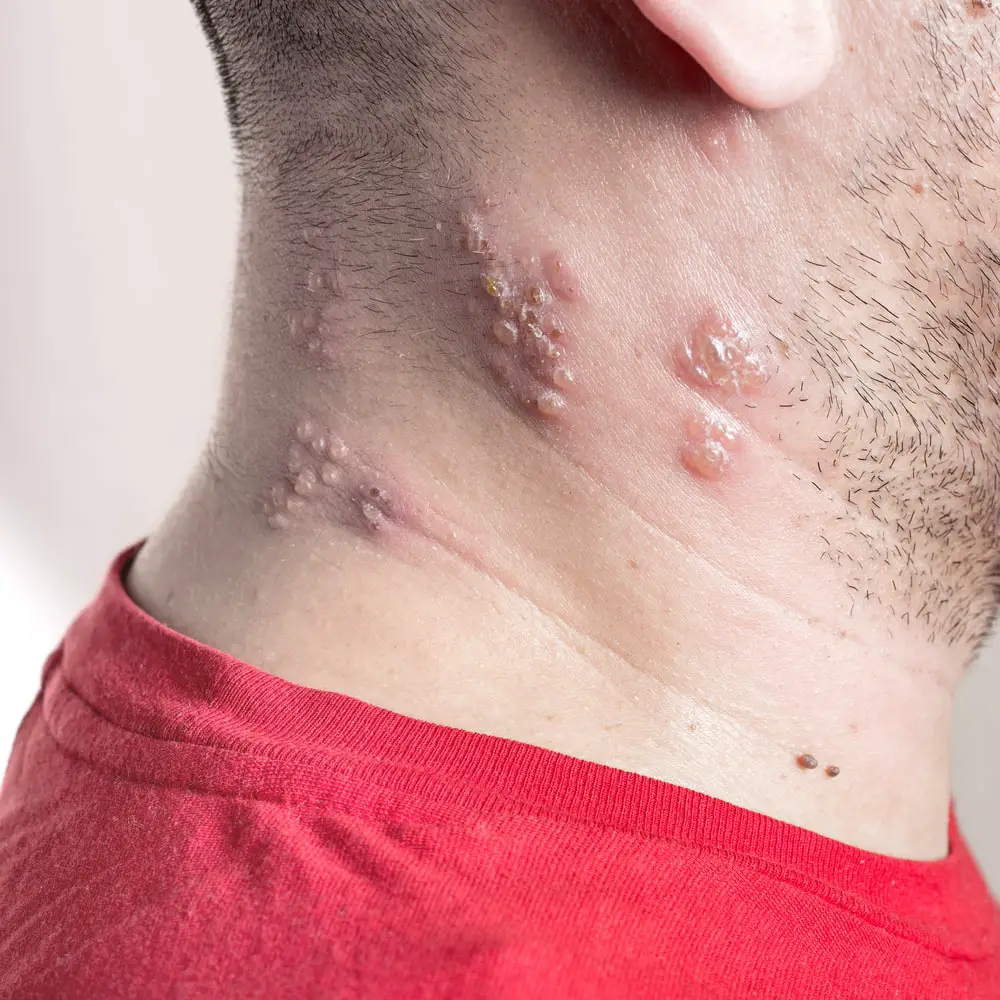As a BetterHelp affiliate, we receive compensation from BetterHelp if you purchase products or services through the links provided
Anyone who has had the unpleasant experience of a shingles outbreak knows that this viral infection can be extremely painful. But did you know that shingles can also be triggered by stress?
This blog post will explore the connection between stress and shingles, including the causes, symptoms, and treatment options. When it comes to the cause of shingles, stress plays a commonly unknown part. We hope this information will help you better understand this condition and how to manage it.
What are Shingles?

Shingles is a painful inflammatory skin condition caused by the varicella-zoster virus, more commonly known as chickenpox. The virus attacks the nerve endings in the skin, causing pain and discomfort. Shingles are most common in older adults but can also be triggered by stress.
If you think you might have shingles, it is vital to see a doctor as soon as possible so you can get the proper treatment. Left untreated, shingles can cause severe damage to the skin and can be fatal. So if you think you might have shingles, don’t delay seeking medical help.
Signs and Symptoms of Shingles
The most common symptom of shingles is a single red spot on one side of your body. Other symptoms may include fever, headache, and neck pain.
The virus causes inflammation in the lining of the skin and often results in blisters. Shingles can sometimes cause nerve pain that can last for months or even years after the blisters have healed.
While the exact cause of shingles is unknown, it is believed that stress or other factors may trigger the virus to become active again.
If you experience these symptoms, you must see a doctor as soon as possible for diagnosis and treatment.
How are Shingles Contracted?
An infected person spreads the virus through contact with saliva or blood. Once infected with VZV, the virus remains dormant in your body for years.
Shingles are most commonly seen in people over 50 but can occur at any age. However, the virus can be reactivated by stress or other factors. When the virus is reactivated, it causes shingles.
The best way to prevent shingles is to get vaccinated.
The Connection Between Stress and Shingles
Several factors can increase your risk of developing shingles. Although not a direct cause of shingles, stress does play its part in making you more susceptible to catching the virus.
Stress can weaken your immune system, making you more susceptible to catching any illness. In addition, stress can cause the body to produce more chemicals that promote inflammation. These chemicals can increase your risk of developing shingles.
If you are under a lot of stress, it is essential to reduce your stress levels. Exercise, relaxation techniques, and counseling can all help to reduce stress.
How are Shingles Treated?
Shingles can be very painful and can last for two to four weeks. Depending on the severity of the infection, treatment for shingles may include over-the-counter painkillers, antibiotics, or surgery. In most cases, however, the infection will clear up without treatment.
Antiviral medication
Three types of antiviral medication can help stop the virus from replicating: acyclovir, famciclovir, and valacyclovir.
Acyclovir is the most commonly prescribed antiviral for shingles. It is effective in reducing the pain and itching associated with the rash.
Famciclovir and valacyclovir are less commonly prescribed, but they are more effective in reducing the duration of the rash.
Pain relief medication
Topical pain relievers are the most common treatment for shingles and work by blocking nerve signals to the affected area. If you experience severe pain, your doctor may prescribe oral medication to help with sleep and relaxation.
In most cases, shingles will go away within a few weeks. However, some people may experience long-term pain from shingles. If this is the case, your doctor may recommend additional treatments to help manage your pain.
Final Thoughts: Don’t Stress About Shingles
Though it may seem like a condition that only affects older adults, shingles are becoming common in people of all ages. People must understand the role in the cause of shingles stress plays. If you are experiencing stress, talk to your doctor about ways to manage it. Improving your physical and mental health can help reduce your risk of developing shingles.
If you have any concerns about shingles, please consult your doctor. Shingles can be a severe condition and should not be taken lightly. Early diagnosis and treatment is the best way to prevent complications.
Frequently Asked Questions
- 3 Ways Wearing a Hat Can Help Lower Your Stress Levels - April 19, 2025
- Breaking the Silence: Why Men’s Mental Health Matters More Than Ever - April 15, 2025
- How to Transform a Home’s Patio Space into a Relaxing Space - March 23, 2025
This site contains affiliate links to products. We will receive a commission for purchases made through these links.



